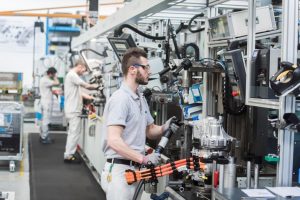Manufacturers look to reduce risk by acquiring suppliers

AN increasing number of businesses in the West Midlands are turning to mergers and acquisitions as a vehicle for growth.
Accountants and business adviser Clement Keys said it had witnessed a significant increase in deal activity since the General Election, with the manufacturing sector in particular, being very active.
The firm said many manufacturers were looking to add ‘bolt on’ services by acquiring suppliers and expanding their product or service to reduce risk.
It said this was in part a reaction to the failure of an expected upturn in business activity post-election to come to fruition and drive growth.
In such circumstances, Midlands businesses are turning to M&As to increase profits and provide added financial security, said the firm.
Ross Cocker, corporate finance partner at Clement Keys, said: “This activity is particularly prominent due to a highly competitive marketplace – merging allows businesses to build critical mass much more quickly than organic growth alone.
“As a result of this, many businesses are moving to consolidate with competitors to increase efficiencies, drive cost savings and unite each other’s customer and supplier chains.
“In a similar vein, the region has seen an increase in cross-industry mergers, with established businesses looking to diversify their current business offering.”
In the manufacturing sector, Cocker said many firms had been shaken by instability in overseas markets, with the recent devaluation of the Chinese Yuan denting business confidence for the region’s exporters.
“Larger businesses are much better equipped to ride out market changes and currency fluctuations, hence the increase in merger activity,” he said.
“Becoming less reliant on two or three core customers and increasing the businesses’ product or service offering reduces business’ vulnerability to market change.
“As the UK skills shortage intensifies, attracting and retaining skilled staff is becoming a huge challenge. When acquiring another business, the biggest asset on offer may be its staff. The skills base of the business can become a key part of deal negotiations.”
However, in order for mergers and acquisitions to be a success, potential deals must be closely scrutinised at an early stage to gauge their suitability, Cocker added.
Rather than chasing top-line turnover, prospective buyers should examine the strength of a business’s customer and supplier base, as well as its service and product offering, he said.
“Before signing on the dotted line, decision makers must carry out all of the required due diligence checks to assess the real value of the organisation. Looking past the balance sheet is a must, a business’s assets and capabilities when combined with your own may allow huge efficiencies to be made or facilitate penetration into new markets,” he said.
“For many entrepreneurs and business owners, now is the ideal time to sell, with tax conditions the best they will probably ever be. Entrepreneurs’ relief currently stands at a lifetime allocation of £10m which is taxed at the reduced rate of 10%.”









